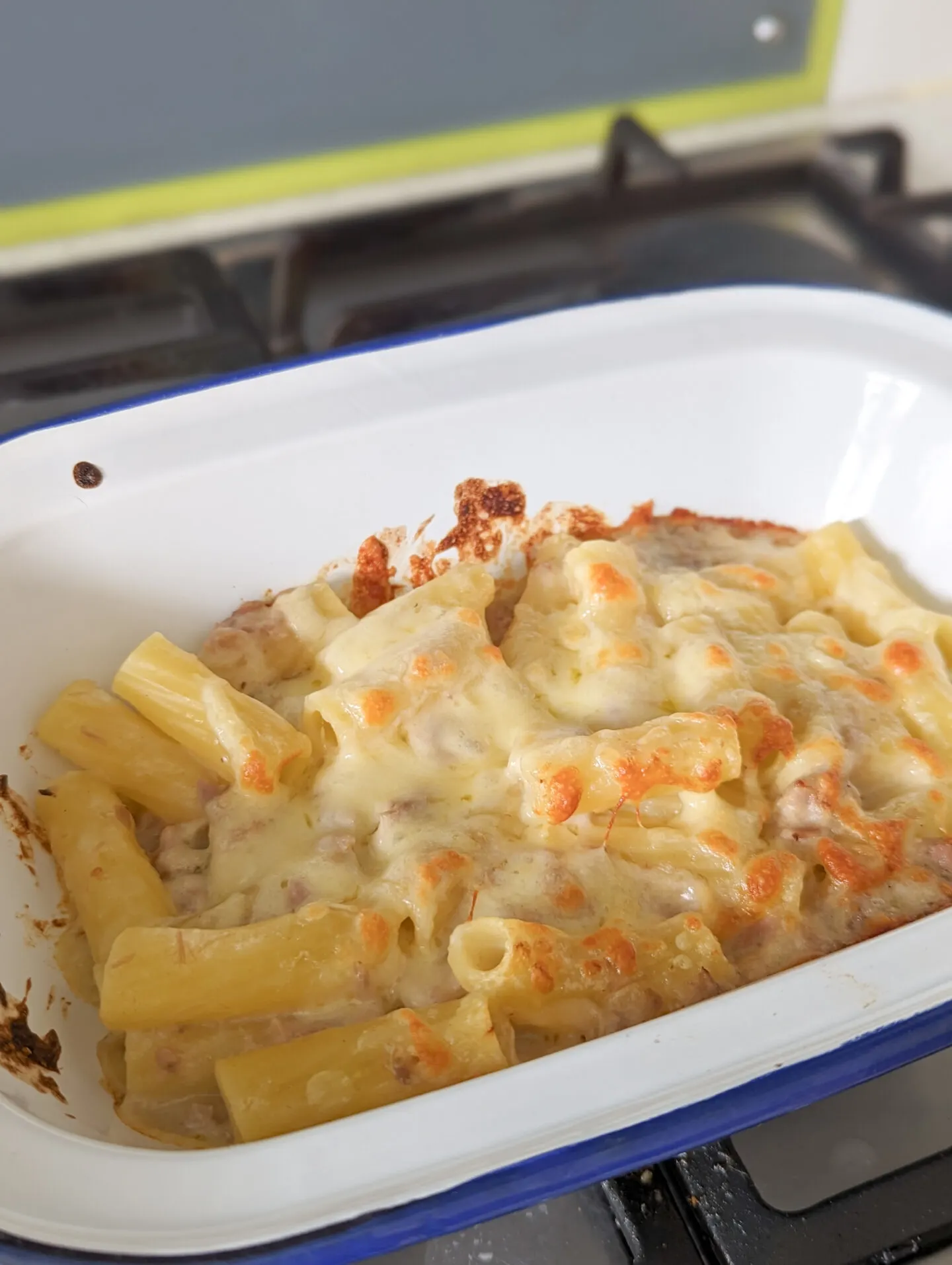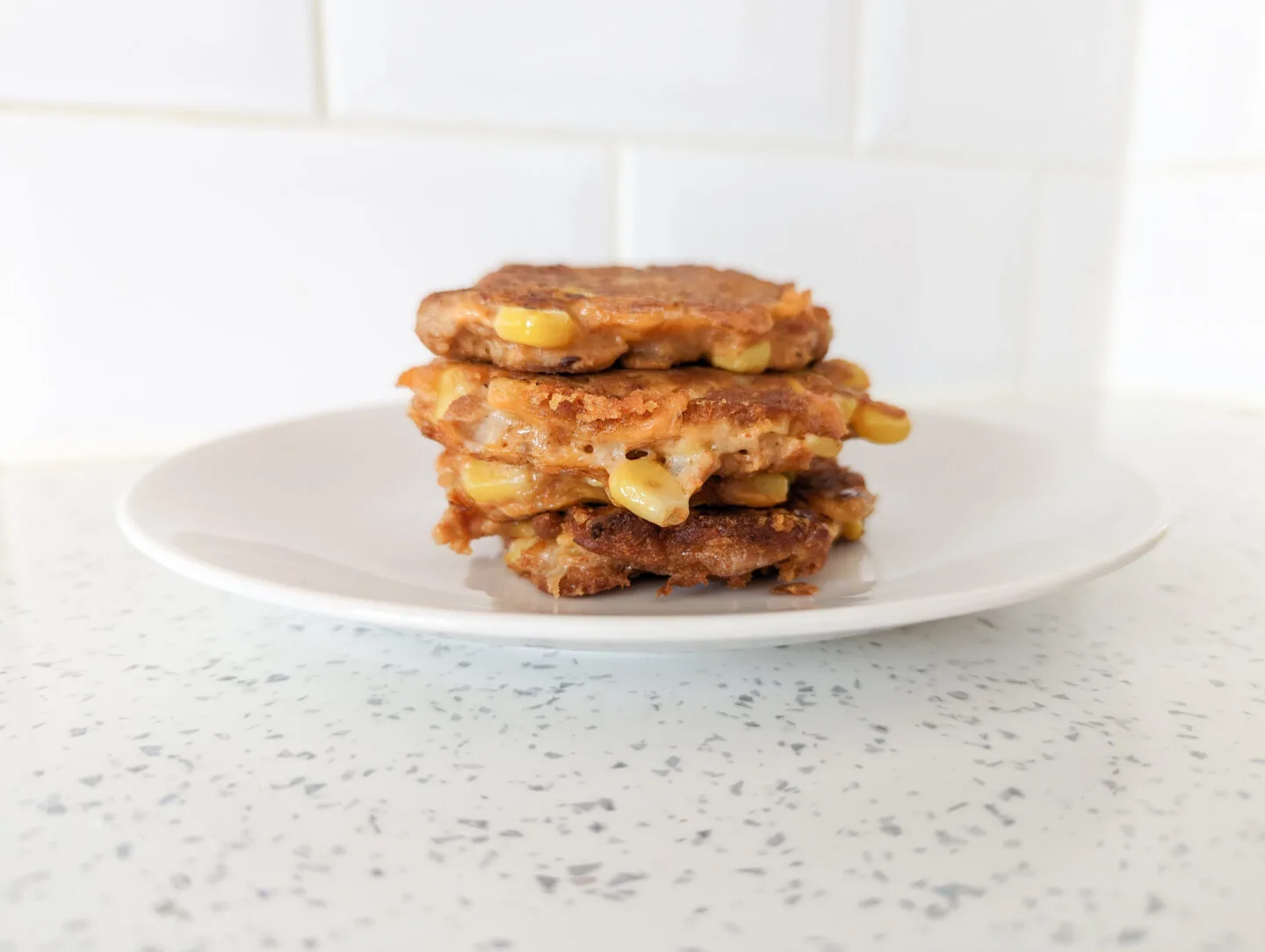Fish is considered an important part of a balanced diet, so it’s no wonder parents often want to know, can babies eat tuna? Tuna is an excellent source of vital nutrients that help to build a strong heart and keep babies happy and healthy. It is safe to give your baby tuna to eat as part of a well balanced diet.

Further Information Regarding The Question, Can Babies Eat Tuna?
If you’re a fan of tuna, then it’s likely that you will be considering giving some to your baby once you have introduced them to solid foods. Like any parent, before offering such foods to your precious little one, you will want to make sure that it is safe. We have covered a wide range of topics below that discuss everything you need to know in order to answer the question, “can babies eat tuna?”. We’ll be discussing the following:
- Canned Tuna Vs Fresh Tuna
- Health Benefits Of Eating Tuna
- Potential Risks Associated With Eating Tuna
- Is It Possible For Your Baby To Be Allergic To Tuna?
Let’s take a look at each point in turn.

Canned Tuna Vs Fresh Tuna
When it comes to answering “can babies eat tuna?” It’s important to note that there are different varieties of tuna available on the market. Canned tuna, such as skipjack, is considered safe for babies to eat. Canned tuna is also cooked during the canning process, which means it is perfectly safe for your baby to eat this straight from the can, without any extra cooking. Canned tuna is a versatile ingredient used in many baby-safe meals and has a long shelf life, making it an ideal kitchen cupboard staple for baby-led weaning recipes such as tuna and sweetcorn pasta salad and tuna and couscous patties.
All fish your baby eats should be fully-cooked, which is one reason many parents prefer to feed their babies canned tuna over fresh fish. Another reason for this is that it is easier to track the mercury levels in canned tuna as you’re able to check the labels to ensure you are getting low-mercury varieties. If you are planning to offer your baby fresh tuna, limit their servings to once or twice a week and ensure that the fish is fully cooked.

Health Benefits Of Eating Tuna
There are plenty of health benefits of eating tuna, especially for young children whose bodies are still growing and developing. In particular, when asking ‘can babies eat tuna?’, you’ll be interested to learn that tuna contains important nutrients to support brain development and growth, as well as eye development. Eating fish, like tuna, provides your baby with essential Omega-3 and Omega-6 fatty acids and iron, which are pivotal for cognitive development.
Additionally, tuna is a protein-rich food. Babies under 1 need about 0.5 ounces to 1 ounce of protein each day. Although there are many other foods that make great protein sources for babies, such as nuts and eggs, fish offers a plethora of other benefits as well. In particular, tuna offers a great source of protein for young babies, all without the high levels of saturated fats that other protein sources may contain.

Potential Risks Associated With Eating Tuna
Not all tuna is the same, so it’s important that when you consider the question, can babies eat tuna? you familiarise yourself with the varieties that are safe for your children. Some types of tuna, such as bigeye tuna, contain dangerously high levels of mercury; mercury can have a severely detrimental effect on your baby’s growth and development, including damage to the brain, kidneys, and liver. Additionally, exposure to high levels of mercury can also lead to tremors, memory problems, and kidney damage.
However, it’s not all doom and gloom as there are many varieties of tuna that are safe for children to consume and make great ingredients in baby-led weaning meals. Light tuna or skipjack tuna contain far lower levels of mercury, so by sticking to the recommended serving size of these varieties, your baby will be able to reap the rewards of this nutritious fish, without worrying about the risks of consuming trace amounts of mercury. ,
Always look out for low-mercury options when sourcing tuna for your baby.

Is It Possible For My Baby To Be Allergic To Tuna?
Fish, including tuna, is considered a common allergy and therefore should be offered to your baby as a new food on its own. When giving your baby tuna for the first time, make sure that the tuna is the only new food that you are introducing and familiarise yourself with the common symptoms associated with an allergic reaction:
- tingling or itching in the mouth
- a raised, itchy red rash, or red and itchy skin without a raised rash
- swelling of the face, mouth, throat or other areas of the body
- difficulty swallowing
- wheezing or shortness of breath
- feeling dizzy and lightheaded
- feeling sick (nausea) or vomiting
- abdominal pain or diarrhea
- hay fever-like symptoms, such as sneezing or itchy eyes
If you see signs such as hives, or a rash, contact your child’s GP. However, if you notice that your baby is experiencing difficulty with breathing, or they’re having multiple allergy symptoms at once, it’s time to call 999.

Water, Oil, Or Brine?
If you’re a big fan of tuna, you’ll know that canned varieties are often stored with either spring water, oil, or brine. When considering “can babies eat tuna?”, you should also pay attention to the liquid that the fish is canned with, as some are better than others.
Tuna that is canned in oil is not ideal for babies as the Omega-3 fatty acids in the tuna may be lost to the oil. This means that, although tuna is still safe to eat, some of the nutritional benefits will be lost.
Tuna that is canned in brine is not a good choice for your baby. Brine is essentially salt water and therefore tuna canned with brine can become infused with additional sodium, making it too salty for your baby’s kidneys to process.
Of all types of canned tuna, tuna that has been canned in spring water is the best option for your baby. This is because none of the nutritional benefits are lost to the water.

How To Introduce Tuna To Your Baby
You can start to allow your child to try new foods such as tuna once they’re 6 months of age and ready to start moving onto solids. Look out for readiness signs such as being able to sit up unassisted and showing a keen interest in food.
Offer your baby tuna and allow them to pick up the flakes and self-feed. Letting your baby discover food on their own terms is all part of the baby-led weaning process and helps to foster positive attitudes towards food. If your baby doesn’t seem keen on tuna, try again at a later date. It often takes several tries for babies to develop a taste for new foods.
Tuna recipes for babies





Can Babies Eat Tuna?
When it comes to answering the question, “can babies eat tuna?”, it comes down to your personal preference when considering the variety you wish to offer. Some parents choose to offer fresh fish, whereas others prefer canned tuna. Both varieties of fish offer a plethora of health benefits, but be aware that tuna canned in brine should be avoided due to higher levels of sodium. Make sure to only offer one new food at a time and wait a few days before offering another new food in order for you to assess your baby for any signs of allergies.
